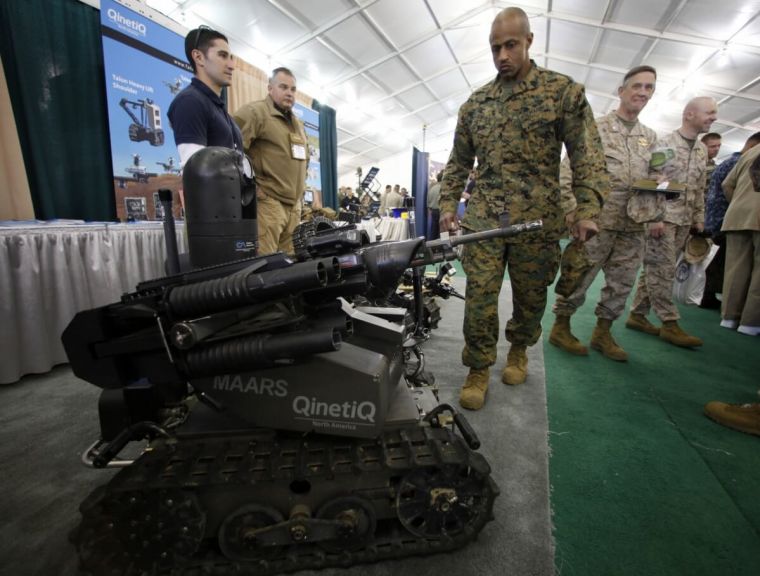Why A Zombie Invasion Is More Likely Than A Religious Apocalypse
TS Eliot: there was a cheerful soul. "This is the way the world ends, not with a bang, but a whimper," he famously said in his poem The Hollow Men.
However, according to a recent YouGov poll, the British people beg to differ. Asked which event was most likely to cause human extinction, 38 per cent said nuclear war, while 31 per cent opted for climate change. A pandemic, a meteor strike and an extreme seismic event were all up there, as were bees dying out and a solar flare. The latter is just bad science, but it shades into the weird and wonderful: five per cent thought humanity would fall victim to a robot uprising, two per cent to a zombie outbreak and two per cent to an alien invasion.

But between the solar flare and the I, Robot scenario, there's another: eight per cent of the population believe human beings will be wiped out by a "religious apocalypse".
This is about the same proportion as the number of regular churchgoers in the UK – most of whom probably don't subscribe to the particular End-Times theories that envisage this sort of termination – but there are quite a few Muslims in the country too (around 4.5 per cent of the population) and they believe in a Tribulation and Day of Judgment too, which might bump the numbers up.
End-Times theology comes and goes, depending to some extent on what's happening in the wider world. It was very big at the turn of the last millenium; as the year 1,000 approached numbers of people expected Christ's return and gave away their possessions to the Church accordingly. In 17th-century England there were Millenialists who saw the overthrow of the monarchy and the execution of Charles I as the fulfilment of prophecy.
In modern times the pioneer of Premillenialism, which teaches that Jesus will physically return to the earth after a period of great tribulation, was JN Darby (1800-1882), founder of the Plymouth Brethren. It's his views that have become mainstream among many evangelical Protestants, and have spawned fictional treatments like the Left Behind series, which has done so much to popularise the genre.
How many of the eight per cent who believe that humanity is doomed through a religious apocalypse have really thought it through? Not many, probably. Left Behind gets mixed up with Stephen King's The Stand, Cormac McCarthy's The Road, Mad Max and 2012. The world's going to end, and not nicely. Some people put a religious gloss on it, some don't; we're all going to end up the same way.
But still: that eight per cent is worrying, because of what it says about how people think about God. He is someone who will inflict plagues, famine and fires on the earth. He will wipe out humanity – apart from the elect few – in justified wrath. He will destroy, exterminate, obliterate. He's a sort of celestial Skynet, and he will unleash his Terminators upon the earth.
How have we allowed that sort of image of God to take root? in Genesis 8: 21-22, after the Flood, God promises he will never again destroy all living creatures: "As long as the earth endures, seedtime and harvest, cold and heat, summer and winter, day and night will never cease." Yes, there are plenty of dangers even to the fabric of the world itself, like nuclear war; but these are human threats, not divine ones. God is not angry; God is love.
At the same time, the Judeo-Christian concept of history is linear, not circular. It's going somewhere, and there is an end and a final judgment. But what that judgment will look like, no one has any idea. One thing that we can be sure of is that Revelation and the other apocalyptic books don't provide any kind of route map for it. They aren't predictive in anything like the sense that End-Times theorists want to believe; they deal with spiritual and psychological realities, not with future history.
Is humanity's time on earth limited? Very possibly; and given all the ways we are able to destroy ourselves nowadays, the days may be getting increasingly short. But destruction isn't God's will for his creation. A zombie apocalypse is far more likely than a religious one; and if and when the world ends, it won't be with either a bang or a whimper, but with a shout of praise.











